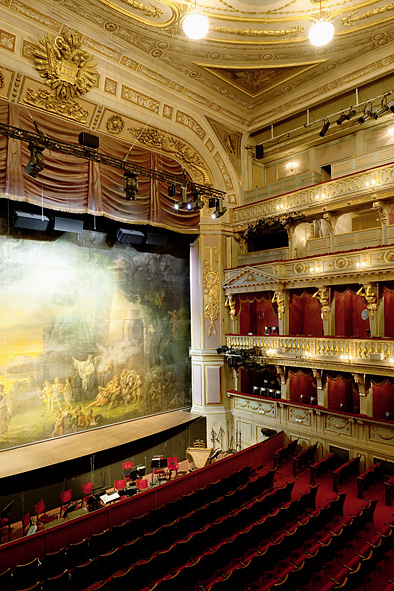Sponsored Content
Scandal or Stroke of Genius? Herheim's “Fledermaus” Divides Opinions on Strauss Anniversary
With the premiere of Johann Strauss' operetta “Die Fledermaus” at the Musiktheater an der Wien, the 200th anniversary of the Waltz King reached a highly controversial climax. Artistic director and director Stefan Herheim presented a “ludicrous” and “fast-paced” new production that playfully exaggerates and politically charges the original, which premiered there in 1874.
 With the premiere of Johann Strauss' operetta “Die Fledermaus” at the Musiktheater an der Wien, the composer's 200th anniversary year celebrated a high point. / Picture: © Wikimedia Commons; Paul Ott / VBW, CC BY-SA 3.0 (https://creativecommons.org/licenses/by-sa/3.0/deed.en)
With the premiere of Johann Strauss' operetta “Die Fledermaus” at the Musiktheater an der Wien, the composer's 200th anniversary year celebrated a high point. / Picture: © Wikimedia Commons; Paul Ott / VBW, CC BY-SA 3.0 (https://creativecommons.org/licenses/by-sa/3.0/deed.en)
The Johann Strauss anniversary year 2025 in Vienna is very extensive and offers a variety of events that take place throughout the year. In any case, the “Queen of Operettas” returned to her place of origin, but little remained of the usual New Year's Eve bliss, as reported by ORF. Herheim, known for his radical…
or Log In
Fast News Search





